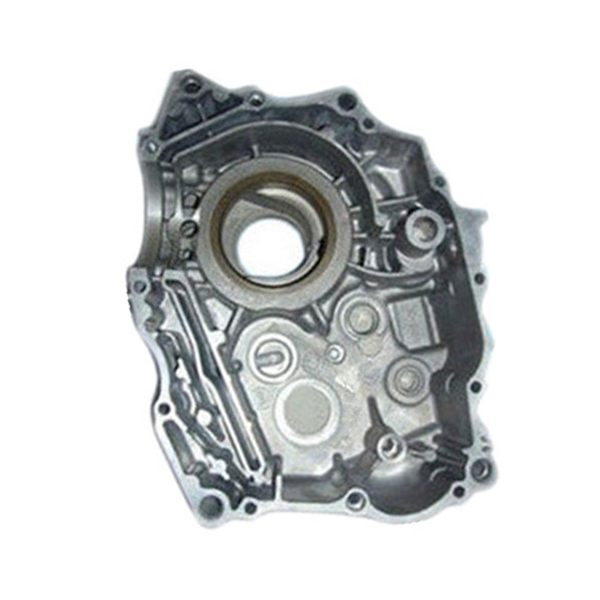Mobile:+86-311-808-126-83
Email:info@ydcastings.com
English
Understanding the Importance of Engine Oil Pan for Your Vehicle's Performance
The Importance of the Engine Oil Pan Understanding Its Role in Vehicle Maintenance
When it comes to the intricate machinery of an automobile, every component plays a vital role in ensuring optimal performance and longevity. One often-overlooked yet essential part of this system is the engine oil pan. The engine oil pan, sometimes referred to as the sump, is crucial for the overall health of the engine, affecting everything from lubrication to temperature regulation. Understanding its function and importance can help vehicle owners take better care of their automobiles.
What is the Engine Oil Pan?
The engine oil pan is a metal reservoir located at the bottom of the engine block, designed to store oil. It serves multiple purposes, including holding the oil used for lubrication, acting as a structural component, and providing a means for the oil to circulate through the engine. Typically, an oil pump draws oil from the pan, which is then distributed to the various parts of the engine that require lubrication.
Functions of the Engine Oil Pan
1. Oil Reservoir The primary function of the oil pan is to store the engine oil. This lubrication is key to minimizing friction and wear on engine components, ensuring smooth operation and extending the engine's lifespan.
2. Cooling The oil pan plays a role in dissipating heat. Engine oil absorbs heat generated during combustion and friction while circulating through the engine. The oil pan is often designed to allow air to flow over its surface, aiding in cooling the oil, which in turn helps regulate engine temperature.
3. Structure and Protection As the lower part of the engine assembly, the oil pan provides structural integrity and protection. It shields the bottom of the engine from potential damage due to debris, road hazards, or impacts.
4. Filtration and Contaminant Settling The oil pan collects contaminants that may circulate within the engine, allowing them to settle at the bottom. This helps to ensure that the oil pump draws cleaner oil, which can help reduce wear and tear on the engine components.
Common Issues with Engine Oil Pans
Despite its importance, the oil pan can develop problems over time. Some common issues include
ls engine oil pan

- Oil Leaks Gaskets and seals on the oil pan can wear out, leading to leaks. This not only results in loss of crucial oil but can also pose a risk of fire if the leaking oil comes into contact with hot engine surfaces.
- Damaged Pan Physical damage from road debris or accidents can cause cracks or dents in the oil pan
. Even minor damage can lead to oil leaks and compromised engine lubrication.- Contamination Over time, oil can become contaminated with dirt, metal shavings, and other debris. If not addressed through regular oil changes, this can lead to a decrease in lubrication quality and potential engine damage.
Maintenance Tips for the Engine Oil Pan
To ensure the engine oil pan continues to function effectively, vehicle owners should adhere to several maintenance practices
1. Regular Oil Changes Changing the engine oil at recommended intervals helps maintain lubrication quality. This also allows for the inspection of the oil pan for leaks or damage.
2. Routine Checks for Leaks Periodically inspecting the area around the oil pan can help detect leaks early. Look for signs of oil spots on the ground or oil residue on the engine's surface.
3. Watch for Warning Lights Pay attention to dashboard warning lights. If the oil pressure warning light comes on, it may indicate a problem with oil circulation, potentially involving the oil pan.
4. Professional Inspections During routine maintenance, have a professional mechanic inspect the oil pan and its components. Early detection of issues can save significant repair costs.
Conclusion
The engine oil pan is a critical component of automotive health, providing essential functions that contribute to the engine's performance and longevity. Understanding its role and maintaining it properly can prevent costly repairs and ensure that your vehicle runs smoothly for years to come. Regular maintenance and timely interventions can extend the life of your vehicle, offering peace of mind and reliable transportation. Remember, a well-maintained engine oil pan is a key to a healthy engine and a successful driving experience.
-
Materials Used in Manufacturing Cap End Pipe FittingsNewsNov.24,2025
-
Material Properties of CF8M CastingNewsNov.24,2025
-
How to Inspect Pump Cap Ends for DamageNewsNov.21,2025
-
Backward Curved Impeller – Efficient Airflow Solutions for Industry | YD CastingsNewsNov.21,2025
-
Automobile Water Pump - Efficient, Quiet, Durable & ElectricNewsNov.21,2025
-
Impeller for Pumps – High-Efficiency, Durable, OEM-ReadyNewsNov.21,2025











